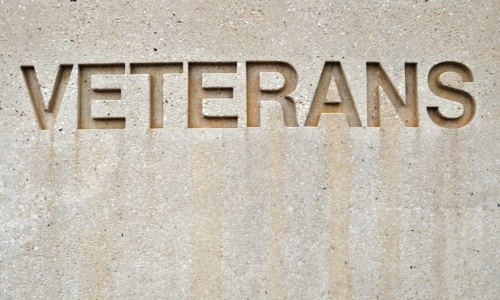Veterans- A few things to know
Author: Gail Tittle
If your spouse was ever in the military, reserves, or National Guard, for just a few years or for a career, the Veterans Administration could be very helpful, even invaluable. The VA can provide a full range of services that may prove to be helpful or even invaluable.
The first step is to apply for health care benefits by going to va.gov/health-care. If your spouse meets one of the requirements and the VA deems they are eligible for benefits, they will need to register with the VA facility you will be using. You are then able to schedule appointments by phone or on-line.
The VA will first schedule a physical for your spouse to assess their needs and to access other services. If your spouse is in need of regular healthcare this can save you considerable expenses. The VA provides a wide range of services, including vision care and mental health care. With a GBM diagnosis, the Physical Therapy and Palliative Care departments can be especially helpful.
The Physical Therapy department can offer a wide range of services, from PT services to providing a wide array of equipment for home or personal use. They can provide items such as handrails for the bathtub, safety rails for the toilet, and walkers, often a very nice Rollator, which they can order for you and deliver directly to your home without charge. This can save you considerable expenses at this difficult time.
The Palliative Care department can also be extremely helpful. Meeting Palliative Care staff early in the GBM process is not a sign of giving up but adds additional support for both you and your spouse. You will meet with a doctor and a social worker, and see all of the options they can offer at that particular facility. The social worker will conduct an interview and will create a plan covering all aspects of what your spouse wants their life to look like and the care and treatment they want throughout the GBM journey. Whether or not you choose to continue having appointments with Palliative Care after the initial one, it can be invaluable to have gone through these initial steps.
When your spouse is in hospice, no matter which hospice agency you use, your spouse may be eligible for in-home health aide and in-home or facility respite care. You can contact the Palliative Care social worker, with whom you have already established a relationship, and they should complete the necessary paperwork and give you instructions for obtaining in-home healthcare in your local area. They will tell you which home healthcare agencies have contracts with the VA and how many hours you are eligible for weekly. Beyond the regular care hours, your spouse is eligible for 30 days of respite care annually, which can be used to supplement your other daily/weekly hours, or can be used in 24 hour increments, either in-home or in a VA contracted facility.





